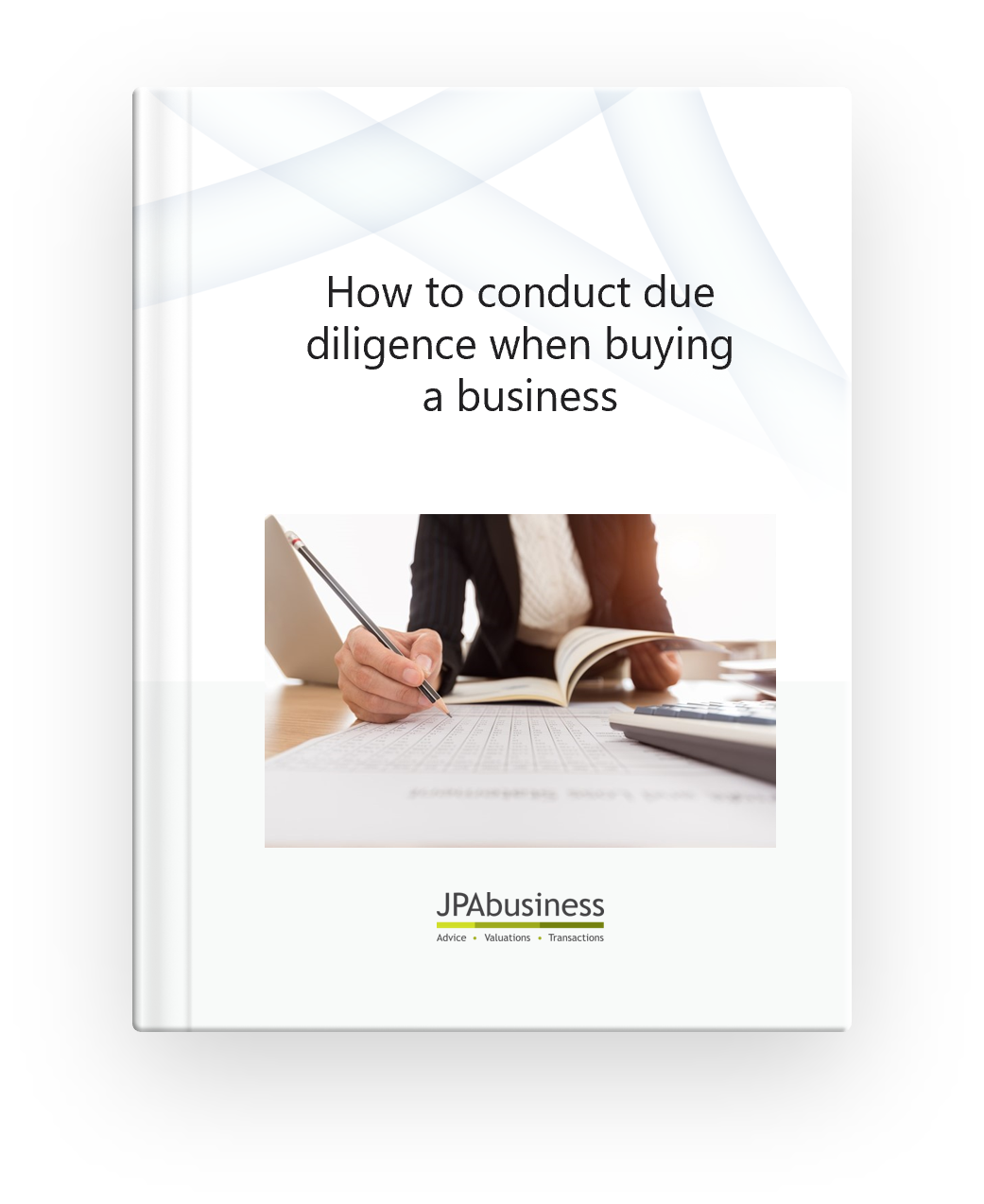
It’s common practice to make an offer ‘subject to due diligence’ when buying a business.
The due diligence process involves cross-referencing and verifying the information you’ve been provided by the vendor, to confirm it’s accurate.
Due diligence is also a way of identifying risks and issues that may be going on in the background that were not shared by the vendor – issues that might hit you in the back of the head if they came out after you purchased the business!
Below is an example from a client of ours – I’ve omitted some details for confidentiality purposes – showing why it really is critical to conduct due diligence when buying a business.
Client case study
This client was looking to purchase a successful, long-held family business that manufactured industrial component products used by a range of different industry sector clients.
It was run by two brothers, some of their family members, and about 25 non-family employees. The family was wanting to go through a succession and exit process.
The business had annual earnings of about $1M, and our clients had offered $3.5M for the business i.e. a market multiple of 3.5. This was in line with the vendor’s expected purchase price.
We were then engaged to conduct the due diligence.
Issue number one
The first issue we identified was that the business was heavily dependent on the owners in terms of supplier relationships, and business and product development. This dependence was not made clear to our client before making their offer, nor was it fully reflected in a financial sense in the numbers.
That finding impacted the earnings of the business and highlighted a ‘transition risk’. It made our clients think two things:
- We’ve offered too much for the business relative to the sustainable earnings (after accounting for significant salaries to replace the owners’ expertise); and
- There’s a transition risk in terms of losing the owners’ expertise on settlement, so we need to consider changing the structure of the deal (from 100% upfront payment to 70% upfront, plus an earnout) to mitigate that risk.
The salary issue changed the anticipated earnings from roughly $1M a year to about $800,000. This meant the original offer of $3.5M was at a market multiple above what was reasonable for that type of business at the time i.e. a multiple of almost 4.4, instead of 3.5. As a result our client decided the business was instead only worth about $2.5M.
The transition risk meant our clients thought it would be better to only pay 70% upfront, with the remainder paid via an earnout structure subject to performance and a period of continued service from the owners to provide a meaningful transition.
Issue number two
The second element we identified related to the extensive nature of the plant and equipment in the business and the fact most of it was old and fully depreciated.
We determined that a buyer would need to invest about $3M in updating the P&E over the first five years to keep the business fully operational and competitive.
This was just too big a commitment for our clients and as a result they pulled out of the deal.
Set your boundaries
As business advisors we have plenty of experience on both sides of the business transaction process. We believe the best deal is one that is fair for both parties, and we never want to be the bearers of news that will cause clients to pull out of a deal.
However, when it comes to an investment as significant as buying a business, you have to set boundaries. If certain material issues are found during due diligence, a buyer must be prepared to reconsider and renegotiate terms or, in the worst case, walk away.
Free resources
Due diligence should never just be a box-ticking exercise. It needs to be a thorough and robust analysis to prove up that what you think you’re going to get is what you are actually getting.
If you would like to learn more about the due diligence process, take a look at some of our free resources:
- Template – Due Diligence Checklist
- YouTube short – Minimise risk when buying a business
- Cheat sheet – 8 Due Diligence Tips for Business Buyers
- Case studies – Do I need to do legal due diligence when buying a business?
At JPAbusiness we regularly prepare detailed, custom due diligence checklists for business-buying clients. If you would like to know more about our due diligence services, contact the team on 02 6360 0360 or 02 9893 1803 for a confidential, initial discussion.

